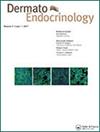加拿大魁北克原住民对 COVID-19 疫苗接种的看法以及影响 COVID-19 疫苗接受度的因素:从 facebook 帖子和评论分析中获得的启示。
IF 4.8
4区 医学
引用次数: 0
摘要
在加拿大,土著居民的疫苗接种率往往低于其他人群。COVID-19 大流行为更好地了解原住民对疫苗接种的看法提供了一个前所未有的机会。本研究旨在探讨加拿大魁北克省原住民对 COVID-19 疫苗的看法以及影响 COVID-19 疫苗接受度的其他因素,这些看法可从原住民在 Facebook 上发表的公开帖子和评论中看出。我们收集了魁北克原住民在 2020 年 11 月 1 日至 2021 年 6 月 15 日期间使用的 95 个 Facebook 页面或群组的数据。为了识别与 COVID-19 疫苗接种有关的帖子,我们在每个 Facebook 页面/群组的搜索栏中用英语和法语进行了关键词搜索("疫苗接种"、"疫苗"、"注射"、"确实"、"Moderna"、"辉瑞")。结果显示,魁北克省的原住民和因纽特人对 COVID-19 疫苗的实用性、安全性和有效性非常关注。他们还表示害怕被用作其他人群的试验对象。原住民和因纽特人提到的接种 COVID-19 疫苗的动机包括再次旅行和与亲人恢复正常生活,以及保护社区中最脆弱人群(尤其是老年人)的愿望。结果表明,原住民医疗保健专业人员被认为是有关 COVID-19 的可靠和值得信赖的信息来源,看到榜样接种疫苗会建立信心并促进对疫苗的接受。由原住民和为原住民开展的适应文化的信息和疫苗接种活动似乎是建立对 COVID-19 疫苗接种信任的关键。本文章由计算机程序翻译,如有差异,请以英文原文为准。
Perceptions of COVID-19 vaccination and factors influencing COVID-19 vaccine acceptance among indigenous peoples in Quebec, Canada: Insights from a facebook posts and comments analysis.
Vaccination rates in Canada tend to be lower among Indigenous peoples than the rest of the population. The COVID-19 pandemic provided an unprecedented opportunity to better understand Indigenous perceptions about vaccination. The aim of this study was to explore perceptions of COVID-19 vaccine and other factors influencing COVID-19 vaccine acceptance as evidenced by public posts and comments on Facebook by Indigenous peoples in Quebec, Canada. We collected data on 95 Facebook pages or groups used by Indigenous peoples in Quebec between November 1, 2020, to June 15, 2021. To identify posts relating to COVID-19 vaccination, a keyword search ("vaccination," "vaccine," "shot," "does," "Moderna," "Pfizer") was carried out in English and French in the search bar of each Facebook page/group. Results show that First Nations peoples and Inuit in Quebec had important concerns about the usefulness, safety and effectiveness of COVID-19 vaccine. They also expressed fear of being used as test subjects for the rest of the population. Motivations mentioned by First Nations peoples and Inuit to get vaccinated against COVID-19 included to travel again and return to normal life with their loved ones, and the desire to protect the most vulnerable in their communities, especially Elders. Results show that Indigenous health care professionals were considered as reliable and trustful source of information regarding COVID-19, and that seeing role models being vaccinated build confidence and foster acceptance of the vaccine. Culturally adapted messages and vaccination campaigns by and for Indigenous peoples appear to be key to building trust toward COVID-19 vaccination.
求助全文
通过发布文献求助,成功后即可免费获取论文全文。
去求助
来源期刊

Human Vaccines & Immunotherapeutics
BIOTECHNOLOGY & APPLIED MICROBIOLOGY-IMMUNOLOGY
自引率
8.30%
发文量
0
审稿时长
1 months
期刊介绍:
(formerly Human Vaccines; issn 1554-8619)
Vaccine research and development is extending its reach beyond the prevention of bacterial or viral diseases. There are experimental vaccines for immunotherapeutic purposes and for applications outside of infectious diseases, in diverse fields such as cancer, autoimmunity, allergy, Alzheimer’s and addiction. Many of these vaccines and immunotherapeutics should become available in the next two decades, with consequent benefit for human health. Continued advancement in this field will benefit from a forum that can (A) help to promote interest by keeping investigators updated, and (B) enable an exchange of ideas regarding the latest progress in the many topics pertaining to vaccines and immunotherapeutics.
Human Vaccines & Immunotherapeutics provides such a forum. It is published monthly in a format that is accessible to a wide international audience in the academic, industrial and public sectors.
 求助内容:
求助内容: 应助结果提醒方式:
应助结果提醒方式:


